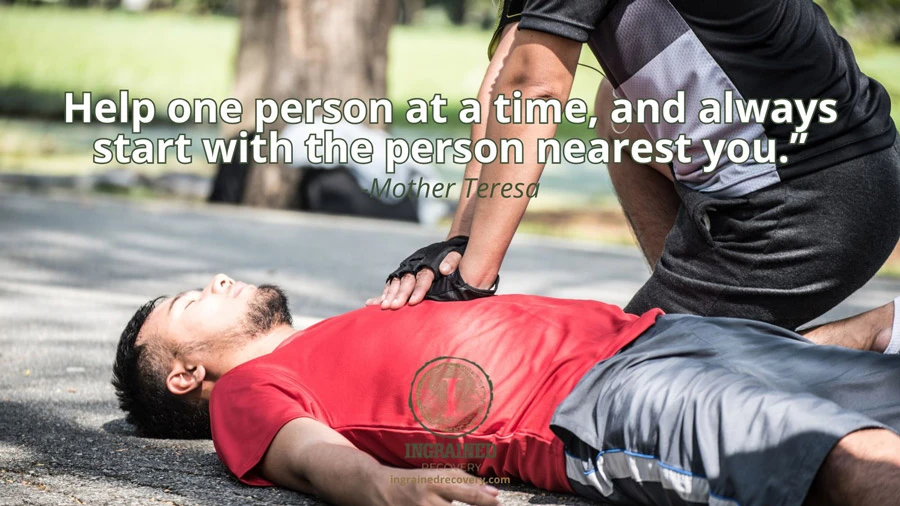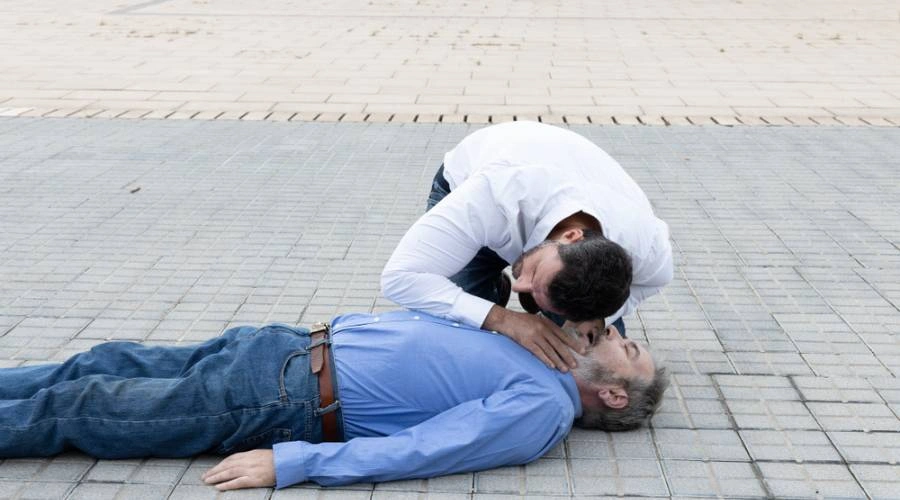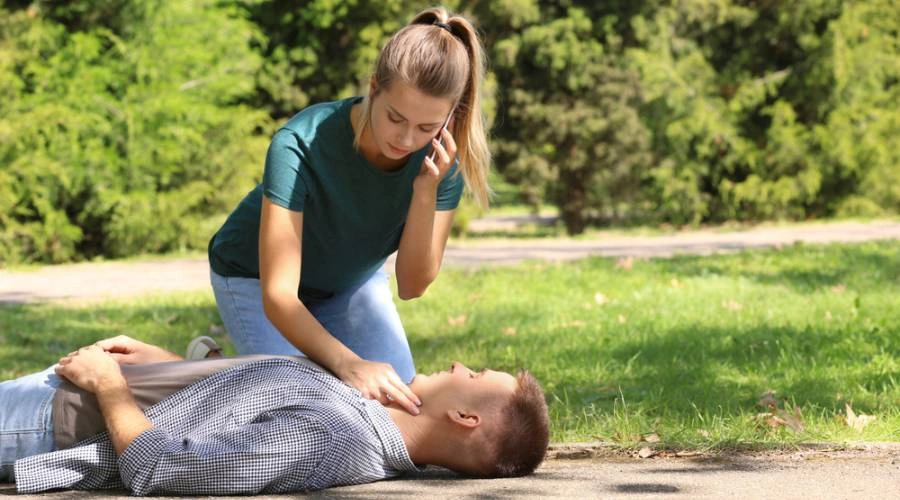Understanding Overdose and Good Samaritan Laws in Georgia
Every split second counts when someone has a drug or alcohol overdose, a heart attack, or is otherwise incapacitated. The Georgia Good Samaritan Law offers legal protection for bystanders who wish to help provide emergency care at the scene without fear of a legal backlash.
The Ingrained Recovery team applauds the actions of good people rendering emergency care even when further medical treatment is required. These people save lives by offering immediate medical assistance until paramedics or other first responders arrive on the scene.
This post looks further into Georgia’s Good Samaritan Lawn and the legal protection offered for those who act in good faith to render emergency medical assistance.
Get Proven Detox And Rehab Options Now!
Find Help At Ingrained Recovery
Georgia State Law Protects the Good Samaritan from Civil Liability
Here is the precise language of O.C.G.A § 51-1-29. It explains how Georgia offers legal protection to people and passerby rendering emergency aid in good faith during a crisis:
- “Any person, including any person licensed to practice medicine and surgery pursuant to Article 2 of Chapter 34 of Title 43 and any person licensed to render services ancillary thereto, who in good faith renders emergency care at the scene of an accident or emergency to the victims thereof without making any charge therefor shall not be liable for any civil damages as a result of any act or omission by such person in rendering emergency care or as a result of any act or failure to act to provide or arrange for further medical treatment or care for the injured person.
- As used in this Code section, the term ’emergency care’ shall include, but shall not be limited to, the rescue or attempted rescue of an incapacitated or endangered individual from a locked motor vehicle.”
Understanding this law gives the Good Samaritan confidence if they must ever render aid during a medical emergency.
The Good Samaritan Law Is Also Called the Medical Amnesty Law

If you offer life-saving aid to someone in need of immediate help, you can’t be held liable for gross negligence as long as you’ve provided reasonable care and acted in good faith. The medical amnesty law encourages people to help others until they can receive professional medical care.
For instance, someone might provide first aid to minimize blood loss to injured victims of a car accident until an EMT team takes charge of care. The person who helped the accident victim is not held responsible, with the rare exception of intentional misconduct.
The hope is that more citizens may feel empowered to provide assistance in medical emergencies.
There’s No Legal Duty to Intervene Under the Georgia Law
The state’s Good Samaritan Law protects people from legal liability if they render aid or emergency care of their own free will. However, it does not state a legal obligation to do so. That means if someone is not confident enough to use nearby automated external defibrillators to help someone having a cardiac arrest other than calling 911, they aren’t held responsible for the outcome.
Local Laws May Require Certain People to Provide Emergency Aid
While Georgia’s Good Samaritan Law provides protection for any person who, in good faith, renders emergency care without mandating it, some cities and towns may require intervention.
For instance, some workers with medical training may be required by local statute to render aid:
- Licensed healthcare providers, such as doctors or nurses
- Law enforcement officers
- Firefighters or EMTs
- Disaster relief workers
- Certain state agency workers or county workers (such as social workers)
A good example is healthcare professionals encountering someone having a drug overdose. Regardless of financial reward, some towns or communities require medical professionals to help.
Situations When the Good Samaritan Statute Apply

The Good Samaritan Law updates in 2020 provide more expanded access and broader protections for those who render aid after an accident or emergency.
Here are some hypothetical examples:
Jamal Helped Someone Survive an Opioid Overdose
Jamal was leaving his office in Atlanta and noticed an unresponsive man slumped in a doorway. He carried Narcan with him because of a relative who was a frequent user and had even recently gotten substance abuse possession charges.
Recognizing the opioid overdose, he called 911 and administered Narcan. The man awakened as the ambulance arrived. Jamal gave the empty Narcan canister to the EMT and let them take over caring for the individual.
Nadine Tried to Save Someone During a Cardiac Emergency
Nadine and her husband were property owners with several apartment buildings. Checking on an issue in her building, she heard a tenant faintly calling out for help. She entered the apartment and found the older man clutching his chest. She called for an ambulance and explained to the dispatcher that the man was conscious.
She learned that because the man was breathing alone, she should just stay by his side and keep him calm. The ambulance crew took him to the emergency department. He later passed away from cardiac arrest. Nadine felt terrible but was protected by the Good Samaritan Law in Georgia.
Shane Saved a Baby from a Locked Motor Vehicle
Shane heard a baby’s cry while walking through the grocery store parking lot on a hot summer day. As he walked past the car, he saw no adults inside or nearby. He peeked in the rear passenger window, shocked to see an infant in a car seat.
Realizing the gravity of the situation, Shane called the police and reported what he saw. Then, he grabbed a tool from his truck and smashed in the window furthest from the crying child. He removed the infant from the car and handed her over to the police officer who had arrived.
Janey Survived an Alcohol Overdose Because of the Georgia Law

Janey attended a friend’s bachelorette party and drank far too many cocktails for her body to process. She passed out on the floor of the ladies room. A bartender using the restroom found Janey on the floor with clammy skin and slow breathing.
She placed Janey in the rescue position to avoid choking on vomit while the club’s manager called for emergency help. Janey awakened in the emergency center, grateful for the help of the Good Samaritan.
Call a Law Professional or Qualified Legal Team for Information
We know that the Good Samaritan Law in Georgia can help save the life of a person experiencing an overdose or mental health crisis. However, we are not experts in Georgia law.
If you need additional help about how the state Good Samaritan Law may affect you, please reach out to a legal professional. Many offer a free consultation for new clients. An attorney can provide you with more detailed information about this Georgia law.
Up To 100% of Rehab Covered By Insurance
Find Help At Ingrained Recovery
Connect With Ingrained Recovery for Mental Health Care
If you have a mental health concern, such as trauma or anxiety, after rendering emergency aid under the Good Samaritan Law, please seek help. Witnessing a traumatic event can lead to depression, anxiety, or flashbacks. It might also be a trigger for drug or alcohol use.
We have options that can help you make sense of the emotional upheaval, whether you were the victim or the Good Samaritan. Call us today for an assessment and to learn how we can help.

